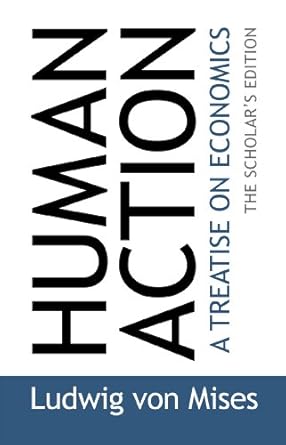Liberalism for Young Readers
Category: ludwig von mises

Based on the 1962 edition of the book, previously titled "The Free And Prosperous Commonwealth: An Exposition Of The Ideas Of Classical Liberalism," Liberalism is a seminal work containing an economic analysis and a scathing critique of socialism. Mises, starting from the principle of private property, demonstrates how the other classical liberal freedoms stem from property rights and argues that liberalism free of government intervention is necessary to promote peace, social harmony, and the general welfare.
The book was translated into English by a student of Mises, Ralph Raico, whose 1962 edition was titled "The Free and Prosperous Commonwealth" rather than "Liberalism," as Mises believed that the term "liberalism" had become widely used in the United States after the New Deal, particularly in the 1960s, to refer to the leftist ideology supporting degrees of government intervention, in opposition to Mises' central premise.
Mises' analysis in Liberalism is influential, providing a comprehensive understanding of the classical liberal perspective. He establishes the primacy of private property as the foundation for individual liberty and argues that the protection of property rights is essential for the efficient allocation of resources and the promotion of social harmony. Mises contends that the interference of the state in economic affairs, through measures such as price controls, taxation, and regulation, inevitably leads to a loss of economic efficiency and a diminution of individual freedom.
Mises' critique of socialism is particularly incisive, as he demonstrates the inherent flaws in the socialist model. He argues that the absence of private property and the free market mechanism in a socialist system prevents the rational allocation of resources, leading to widespread scarcity, inefficiency, and the suppression of individual initiative. Mises' analysis of the socialist calculation problem, which highlights the inability of central planners to effectively coordinate economic activities, has become a cornerstone of the classical liberal critique of socialism.
Moreover, Mises' work in Liberalism emphasizes the intrinsic relationship between economic freedom and political freedom. He contends that the preservation of individual liberty is predicated on the protection of property rights and the free market system, as these mechanisms enable the free exchange of goods and services and the unfettered pursuit of economic opportunities. Mises believes that the erosion of economic freedoms inevitably leads to the erosion of political freedoms, as the state's intervention in the economy invariably expands its power and control over the lives of citizens.
Liberalism's enduring influence can be attributed to Mises' lucid and compelling exposition of the classical liberal worldview. His work has served as a seminal reference for scholars, policymakers, and proponents of free-market economics, inspiring a deeper understanding of the philosophical and practical underpinnings of classical liberalism. Mises' insights continue to resonate in contemporary debates on the role of government, the relationship between economic and political freedoms, and the pursuit of social and economic progress.
product information:
| Attribute | Value | ||||
|---|---|---|---|---|---|
| publisher | Print On Demand; 1st edition (October 5, 2018) | ||||
| publication_date | October 5, 2018 | ||||
| language | English | ||||
| file_size | 430 KB | ||||
| text_to_speech | Enabled | ||||
| screen_reader | Supported | ||||
| enhanced_typesetting | Enabled | ||||
| x_ray | Not Enabled | ||||
| word_wise | Enabled | ||||
| sticky_notes | On Kindle Scribe | ||||
| print_length | 212 pages | ||||
| best_sellers_rank | #347,199 in Kindle Store (See Top 100 in Kindle Store) #408 in Political History (Kindle Store) #1,368 in History & Theory of Politics | ||||
| customer_reviews |
|






![Socialism: An Economic and Sociological Analysis [New Edition, Enlarged with an Epilogue]](https://m.media-amazon.com/images/I/41P7SyGw7IL._SY445_SX342_.jpg)











